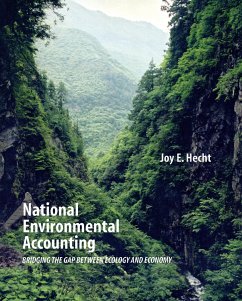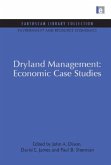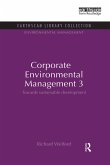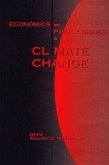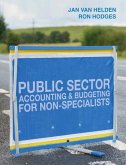- Gebundenes Buch
- Merkliste
- Auf die Merkliste
- Bewerten Bewerten
- Teilen
- Produkt teilen
- Produkterinnerung
- Produkterinnerung
First Published in 2005. Routledge is an imprint of Taylor & Francis, an informa company.
Andere Kunden interessierten sich auch für
![Dryland Management Dryland Management]() John A DixonDryland Management202,99 €
John A DixonDryland Management202,99 €![Corporate Environmental Management 3 Corporate Environmental Management 3]() Corporate Environmental Management 3215,99 €
Corporate Environmental Management 3215,99 €![Four Degrees of Global Warming Four Degrees of Global Warming]() Four Degrees of Global Warming163,99 €
Four Degrees of Global Warming163,99 €![Economics and Policy Issues in Climate Change Economics and Policy Issues in Climate Change]() William D NordhausEconomics and Policy Issues in Climate Change191,99 €
William D NordhausEconomics and Policy Issues in Climate Change191,99 €![Environmental Economics Environmental Economics]() Dodo J ThampapillaiEnvironmental Economics206,99 €
Dodo J ThampapillaiEnvironmental Economics206,99 €![Public Sector Accounting and Budgeting for Non-Specialists Public Sector Accounting and Budgeting for Non-Specialists]() G Jan van HeldenPublic Sector Accounting and Budgeting for Non-Specialists78,99 €
G Jan van HeldenPublic Sector Accounting and Budgeting for Non-Specialists78,99 €![Energy, Environment and Economic Transformation in China Energy, Environment and Economic Transformation in China]() Shiyi ChenEnergy, Environment and Economic Transformation in China160,99 €
Shiyi ChenEnergy, Environment and Economic Transformation in China160,99 €-
-
-
First Published in 2005. Routledge is an imprint of Taylor & Francis, an informa company.
Hinweis: Dieser Artikel kann nur an eine deutsche Lieferadresse ausgeliefert werden.
Hinweis: Dieser Artikel kann nur an eine deutsche Lieferadresse ausgeliefert werden.
Produktdetails
- Produktdetails
- Verlag: Taylor & Francis
- Seitenzahl: 272
- Erscheinungstermin: 25. Januar 2005
- Englisch
- Abmessung: 237mm x 195mm x 10mm
- Gewicht: 603g
- ISBN-13: 9781891853937
- ISBN-10: 1891853937
- Artikelnr.: 21698997
- Herstellerkennzeichnung
- Libri GmbH
- Europaallee 1
- 36244 Bad Hersfeld
- gpsr@libri.de
- Verlag: Taylor & Francis
- Seitenzahl: 272
- Erscheinungstermin: 25. Januar 2005
- Englisch
- Abmessung: 237mm x 195mm x 10mm
- Gewicht: 603g
- ISBN-13: 9781891853937
- ISBN-10: 1891853937
- Artikelnr.: 21698997
- Herstellerkennzeichnung
- Libri GmbH
- Europaallee 1
- 36244 Bad Hersfeld
- gpsr@libri.de
Dr. Joy Hecht began working on environmental accounting as a research assistant to Dr. Henry Peskin at Resources for the Future in Washington, DC. A decade later, after pursuing a PhD in city and regional planning and launching a career working on environmental information issues in international development projects, she returned to economics. She found herself again working with Dr. Peskin on environmental accounting, this time in the Philippines and Indonesia. Environmental information and accounting became intertwined with environmental policy and economics, and she continued consulting in all these areas through the 1990s, working extensively in sub-Saharan Africa, the Maghreb, and southeast Asia.In 1996 Hecht joined IUCN/The World Conservation Union as coordinator of its Green Accounting Initiative. Work with IUCN provided an opportunity to contribute to the operational manual on environmental accounting published by the United Nations in 2000 and to participate in some of the London Group work on the 2003 SEEA. Those experiences convinced her of the need for a book on environmental accounting for a nontechnical audience.Hecht maintains an interest in policy in both U.S. and international contexts. In 2002, she took a position as the founding executive director of the New Jersey Sustainable State Institute, a nonprofit organization engaged in applied research and policy analysis to encourage sustainable strategies within the state. As this book went to press in 2004, she was working on environmental statistics and accounting in Egypt.When Joy Hecht is not overseas, she is exploring the United States; more on that may be found at http://users.rcn.com/jhecht/gypsy Other writings related to environmental issues may be found at http://users.rcn.com/jhecht/professional.
Chapter 1 National Environmental Accounts
Chapter 2 Concepts of Conventional National Income Accounting
Chapter 3 Structure of the Conventional Income Accounts
Chapter 4 Overview of the Revised SEEA
Chapter 5 Pollution Accounting
Chapter 6 Pollution Accounting
Chapter 7 Pollution Accounting
Chapter 8 Resource Accounting
Chapter 9 Forest Accounts
Chapter 10 Subsoil Asset Accounts
Chapter 11 Fisheries, Land, and Water Accounts
Chapter 12 Macroeconomic Indicators in the SEEA
Chapter 13 Macroeconomic Measures outside the SEEA
Chapter 2 Concepts of Conventional National Income Accounting
Chapter 3 Structure of the Conventional Income Accounts
Chapter 4 Overview of the Revised SEEA
Chapter 5 Pollution Accounting
Chapter 6 Pollution Accounting
Chapter 7 Pollution Accounting
Chapter 8 Resource Accounting
Chapter 9 Forest Accounts
Chapter 10 Subsoil Asset Accounts
Chapter 11 Fisheries, Land, and Water Accounts
Chapter 12 Macroeconomic Indicators in the SEEA
Chapter 13 Macroeconomic Measures outside the SEEA
Chapter 1 National Environmental Accounts
Chapter 2 Concepts of Conventional National Income Accounting
Chapter 3 Structure of the Conventional Income Accounts
Chapter 4 Overview of the Revised SEEA
Chapter 5 Pollution Accounting
Chapter 6 Pollution Accounting
Chapter 7 Pollution Accounting
Chapter 8 Resource Accounting
Chapter 9 Forest Accounts
Chapter 10 Subsoil Asset Accounts
Chapter 11 Fisheries, Land, and Water Accounts
Chapter 12 Macroeconomic Indicators in the SEEA
Chapter 13 Macroeconomic Measures outside the SEEA
Chapter 2 Concepts of Conventional National Income Accounting
Chapter 3 Structure of the Conventional Income Accounts
Chapter 4 Overview of the Revised SEEA
Chapter 5 Pollution Accounting
Chapter 6 Pollution Accounting
Chapter 7 Pollution Accounting
Chapter 8 Resource Accounting
Chapter 9 Forest Accounts
Chapter 10 Subsoil Asset Accounts
Chapter 11 Fisheries, Land, and Water Accounts
Chapter 12 Macroeconomic Indicators in the SEEA
Chapter 13 Macroeconomic Measures outside the SEEA

